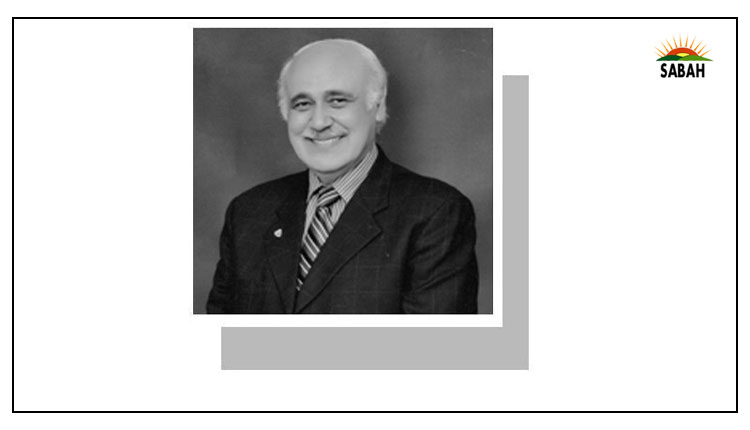A serious business…F.S. Aijazuddin
EXTENDED Eid holidays bring everything to halt, except ones digestion. It is a time to eat, pray and watch long films one would not otherwise find the time to see.
Two recent films caught ones attention during this period of forced indolence. Both had anti-war themes. One All Quiet on the Western Front was set during World War I and the second War Machine in the US misadventure in Afghanistan. Both reinforce with compelling evidence George Clemenceaus famous dictum that war was too serious a business to be left to generals.
Most of us know of All Quiet on the Western Front as a novel by Enrich Maria Remarque. Published in 1928, it was made into a film two years later. It won an Oscar in 1930. It was soon banned by Hitlers Nazi Party and other countries. Curiously, the ban remained in France until 1963.
Portly German and French generals are depicted gorging on delicacies while their troops are scavenging for sustenance in the trenches. The crescendo occurs during the hour preceding the 11am Armistice on Nov 11, 1918. A German general taking advantage of the pause in hostilities releases a contingent of raw recruits in a suicide mission against the unsuspecting French. It was an act of wanton cruelty bordering on barbarism.
History being the version of the victors, Edward Bergers film is an important corrective to their nationalist lies. That it should have been nominated for an Oscar in 2023 shows how far the pendulum has swung back since 1930 from militarism towards the other extreme pacifism.
The second film War Machine (2017) shows how even Hollywood is not shy to debunk its own heroes. Once it idolised heroes like the clean-cut much decorated Audie Murphy and the ramrod general George Patton (whom Hitler called that crazy cowboy general). Today, the anti-hero is in vogue.
In this film, an unforgiving satire, David Michd uses as his military archetype US Gen Stanley McChrystal, once head of the International Security Assistance Force in Afghanistan. McChrystal was relieved of his command for airing criticism against the Obama administration.
Michds film is a fictionalised account of a four-star general, Glen McMahon (played with comic flair by Brad Pitt), who is transferred from success in Iraq to failure in Afghanistan, where he is determined to give Afghans freedom and democracy. The film contains a brilliant cameo by Ben Kingsley as a cowardly whining president Hamid Karzai.
Subtitles to Michds film could have been Gen Dwight Eisenhowers dictum: We are going to have peace even if we have to fight for it. Or alternatively, Gen George Pattons assertion that the object of war is not to die for your country but to make the other bastard die for his.
It is perhaps too early for our filmmakers to expose our establishments to such candid scrutiny.
India is still recovering from the recent revelations by Satya Pal Maliks (former governor of Indian-occupied Jammu & Kashmir) during an interview with Karan Thapar. He admitted that PM Modi and NSA A. Doval had told him to keep quiet on the deaths of 40 Indian jawans at Pulwama due to sheer incompetence by the Indian top brass, so that blame could be shifted to Pakistan, to help the BJP in elections.
In Pakistan, the PTI chief and his mentor the former COAS Gen Qamar Bajwa are going through a messy divorce. The pre-nup agreement had been quite specific. An extension for Gen Bajwa for three years and then another three until 2023 (and if necessary beyond), while in return, continued support for Imran Khan as prime minister until 2023, and beyond. They spar now through the media.
The date of the armistice between Imran Khans PTI and the PDMs combined forces should have been sometime in May, when elections were to be held in Punjab and KP. The date and month remains elusive and unresolved. Meanwhile, the parties continue to snipe at each other from their entrenched positions.
Some stalwarts within the PTI have questioned their leaders decision not to award provincial assembly tickets to loyalists Fawad Chaudhry and Shah Mahmood Qureshi. Both aspire to become chief minister Punjab. Imran has countered by saying that he wishes to have them in Islamabad. As Sun Tzu said: Keep your friends close; keep your enemies closer.
In truth, the Pakistani public is tired of being promised elections that are palpably stale even before they have left the oven. Is there any merit, they ask, in holding elections only to see the same parties continue their combat in the assemblies?
If, according to Herodotus, in peace sons bury their fathers, and in war, fathers bury their sons, Pakistani politicians today strive to bury each other alive.
Courtesy Dawn












